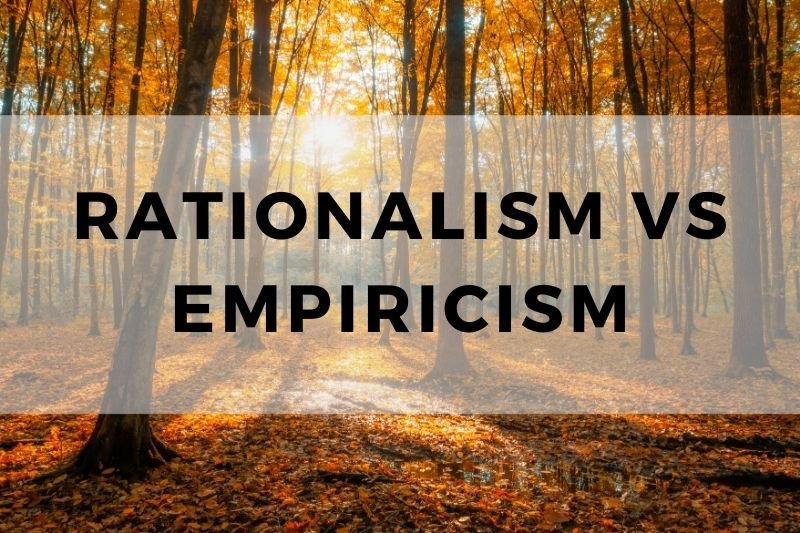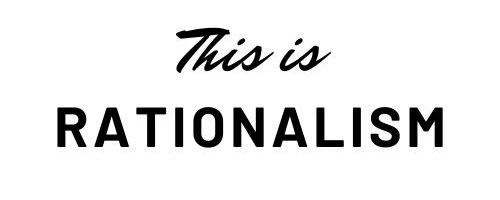
Rationalism vs Empiricism has been one of the most enduring debates in philosophy. At its core, it challenges how we come to know the world. Is knowledge grounded in reason and innate ideas, as rationalists argue? Or is it based on sensory experience and observation, as empiricists claim?
This debate has shaped not only philosophy but also the methods we use in science and everyday life. Understanding the differences between these two approaches is crucial for anyone interested in the nature of knowledge and human understanding.
What is Rationalism?
Rationalism is the belief that reason is the primary source of knowledge. Rationalists argue that certain truths are known innately or can be discovered through logical deduction. They maintain that the mind can grasp universal principles without the need for sensory input. Key figures like René Descartes, Baruch Spinoza, and Gottfried Wilhelm Leibniz championed this view.
For rationalists, knowledge is not something we acquire solely through experience but is rooted in our ability to reason. In essence, they believe some truths exist independently of the external world and can be known through pure thought.
What is Empiricism?
Empiricism holds that knowledge comes primarily from sensory experience. Empiricists argue that our understanding of the world is shaped by what we see, hear, touch, and interact with. Unlike rationalists, they reject the idea of innate knowledge, asserting that the mind starts as a “blank slate” and all ideas are formed through experience.
Thinkers like John Locke, George Berkeley, and David Hume are central to this school of thought. Empiricists emphasize observation and experimentation as the foundation of knowledge, asserting that only what can be empirically verified has genuine truth.
Rationalism vs Empiricism: Key Differences
#1. Source of Knowledge
Rationalism asserts that knowledge is primarily derived from reason and innate ideas, independent of sensory experience. Rationalists believe that certain truths exist within the mind, waiting to be discovered through logical thinking. In contrast, Empiricism claims that knowledge arises from sensory experience—what we see, hear, and feel. Empiricists argue that the mind is a blank slate at birth, and all ideas and knowledge are built through interaction with the external world.
#2. Role of Sensory Experience
For rationalists, sensory experience plays a limited role in the acquisition of knowledge. They argue that reason and intuition reveal fundamental truths, regardless of sensory data. In contrast, empiricists place significant importance on sensory experience, claiming it is the only valid source of knowledge. They emphasize that observation and experimentation are essential to understanding the world and building reliable knowledge, rejecting the notion that knowledge can exist without it.
#3. Emphasis on Reason vs. Observation
Rationalism is grounded in the belief that reason is the key to unlocking knowledge. Logical deduction and intellectual insight are seen as the most reliable ways to discover truths. Empiricism, however, prioritizes observation. Empiricists argue that only through direct sensory experiences and empirical evidence can we gain valid knowledge. Observation is central, and ideas must be tested against the world around us before they can be accepted as true or reliable.
#4. Nature of Truth
Rationalists believe that truth is universal, objective, and independent of sensory experience. They argue that certain truths are eternal, existing beyond the physical world, and can be accessed through reason. Empiricists, however, argue that truth is contingent on experience and that what we know is always subject to change based on new observations. For them, truth is dynamic, grounded in what can be seen, measured, and observed in the world.
#5. Approach to Scientific Inquiry
Rationalists support a more theoretical and deductive approach to scientific inquiry. They emphasize mathematical logic, theoretical reasoning, and abstract principles as the foundations for understanding the world. Empiricists, on the other hand, advocate for an inductive approach based on observation, experimentation, and evidence gathering. They believe that knowledge must be tested and validated through the senses, and scientific conclusions should arise from what can be observed and measured in the physical world.
#6. Concept of Innate Knowledge
Rationalists hold that humans are born with certain innate ideas or principles, such as concepts of space, time, and causality, that do not need to be learned through experience. These innate concepts are thought to be part of the mind’s natural structure. Empiricists reject this idea, arguing that no knowledge is innate. Instead, they claim that the mind is a tabula rasa, and all knowledge arises from experience, with no pre-existing mental content at birth.
#7. Method of Knowledge Acquisition
Rationalists acquire knowledge through intellectual processes, focusing on deductive reasoning, intuition, and innate understanding. They believe that, through these methods, we can arrive at truths about the world without needing direct sensory experience. Empiricists acquire knowledge through inductive reasoning, starting from observations and experiments and building general principles from the data gathered. They argue that empirical methods, rooted in sensory experience, provide a more reliable path to truth.
#8. Attitude Toward Uncertainty
Rationalists often approach uncertainty with confidence in the power of reason. They believe that through proper reasoning and intellectual effort, uncertainty can eventually be overcome, and knowledge can be discovered. Empiricists, however, embrace uncertainty as an inherent part of the process of knowledge acquisition. They acknowledge that our understanding of the world is always provisional, subject to revision as new sensory experiences and evidence come to light.
Critiques of Rationalism and Empiricism
Criticism of Rationalism
One key criticism of Rationalism is that it relies too heavily on abstract reasoning while disregarding the importance of sensory experience. Critics argue that reason alone cannot provide a complete understanding of the world. Without empirical evidence, rational concepts can become disconnected from reality, leading to theories that are purely speculative and not grounded in the observable world. Additionally, the notion of innate ideas is controversial, as it is difficult to prove that certain knowledge is inherently present at birth, independent of experience.
Criticism of Empiricism
Empiricism also faces significant criticism, particularly for its reliance on sensory experience as the sole source of knowledge. Critics argue that sensory perception can be misleading or incomplete, leading to flawed conclusions. Empiricism struggles to explain how abstract concepts, such as mathematical truths or moral principles, can be known if they cannot be directly observed. Furthermore, the idea that the mind is a blank slate is seen as overly simplistic, as it fails to account for the role of reason and prior mental structures in shaping how we interpret experiences.
The Middle Ground: Combining Rationalism and Empiricism
Some philosophers have sought to bridge the gap between Rationalism and Empiricism, recognizing the strengths and limitations of both approaches. Immanuel Kant is one of the most prominent figures in this middle ground. He argued that while knowledge begins with experience, the mind plays an active role in shaping that experience through innate structures, such as space and time. According to Kant, we can never know things as they are in themselves, but we can know how they appear to us through a combination of sensory input and mental organization.
Modern philosophy and science have integrated aspects of both Rationalism and Empiricism. In scientific practice, observation and empirical data are fundamental, but theories and hypotheses often guide how we interpret that data. Mathematics and logic, rooted in Rationalism, provide the framework for formulating predictions and testing theories. Today, it’s widely accepted that human understanding is not purely empirical or purely rational; instead, it involves a complex interaction between sensory experience, reason, and prior knowledge. This blend allows for a more nuanced and comprehensive approach to knowledge acquisition.
Conclusion
The debate between Rationalism and Empiricism continues to influence how we understand the world and acquire knowledge. While Rationalism emphasizes reason and innate ideas, Empiricism highlights the importance of sensory experience and observation. Both philosophies offer valuable insights, yet each has its own limitations.
Philosophers like Immanuel Kant have shown that combining elements of both approaches can provide a more balanced and comprehensive view. Today, modern philosophy and science recognize the need to integrate reason and experience, understanding that both play crucial roles in shaping our knowledge of the world.
